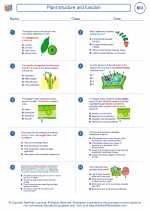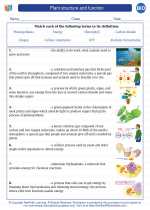Vitamin E
Vitamin E is a group of fat-soluble compounds that act as antioxidants in the body. The most biologically active form of vitamin E is alpha-tocopherol.
Sources of Vitamin E
Vitamin E is found in various foods, including:
- Vegetable oils (such as wheat germ, sunflower, and safflower oils)
- Nuts and seeds (such as almonds, sunflower seeds, and hazelnuts)
- Green leafy vegetables (such as spinach and broccoli)
- Fortified cereals and other fortified foods
Functions of Vitamin E
Vitamin E functions primarily as an antioxidant, protecting cells from the damage caused by free radicals. It also plays a role in immune function, DNA repair, and other metabolic processes.
Deficiency and Toxicity
A deficiency of vitamin E is rare but can lead to nerve and muscle damage. On the other hand, excessive intake of vitamin E supplements can lead to toxicity, characterized by symptoms such as nausea, fatigue, and impaired blood clotting.
Study Guide
As you study vitamin E, consider the following key points:
- Understand the sources of vitamin E and how to incorporate them into a balanced diet.
- Learn about the functions of vitamin E in the body, particularly its role as an antioxidant and its impact on immune function.
- Be aware of the potential risks of vitamin E deficiency and toxicity, and the symptoms associated with each.
- Explore the current research on the benefits of vitamin E supplementation and its potential role in preventing chronic diseases.
By mastering these concepts, you will gain a comprehensive understanding of vitamin E and its importance for overall health.
.◂Biology Worksheets and Study Guides High School. Plant structure and function

 Worksheet/Answer key
Worksheet/Answer key
 Worksheet/Answer key
Worksheet/Answer key
 Worksheet/Answer key
Worksheet/Answer key
 Vocabulary/Answer key
Vocabulary/Answer key
 Vocabulary/Answer key
Vocabulary/Answer key
